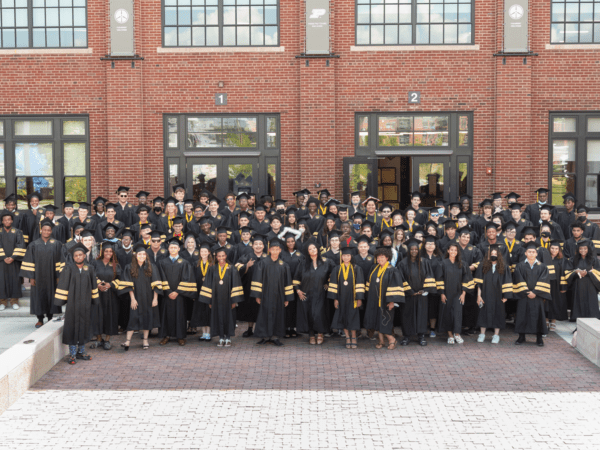Troppo pochi studenti neri e latini di Indianapolis e studenti provenienti da famiglie a basso reddito si iscrivono e completano l’istruzione post-secondaria, il che li lascia meno preparati ad avere successo nella nostra economia del 21° secolo. Università di Purdue, in collaborazione con its Università di Ingegneria, creato Scuola superiore del Politecnico di Purdue (PPHS) per preparare meglio gli studenti neri e latini e gli studenti provenienti da famiglie a basso reddito ad avere successo nelle carriere scientifiche, tecnologiche, ingegneristiche e matematiche (STEM). L’innovativo modello di scuola superiore combina l’apprendimento personalizzato con un curriculum basato su progetti – compreso l’apprendimento esperienziale focalizzato sul settore – che aiuta a dare vita alla carriera degli studenti. L'intenso programma è progettato per essere un trampolino di lancio verso il college o un percorso diretto verso una carriera high-tech per studenti di ogni provenienza.
Nel 2017, la Richard M. Fairbanks Foundation ha assegnato 1.250.000 $ per sostenere il lancio di PPHS e contribuire a sviluppare la capacità di back-office necessaria per scalare il modello. PPHS si è ora esteso a tre campus. I primi risultati delle scuole sono stati promettenti e la prima classe di diplomati di 113 studenti comprendeva 48 studenti accettati alla Purdue University, metà dei quali identificati come neri o latini.



